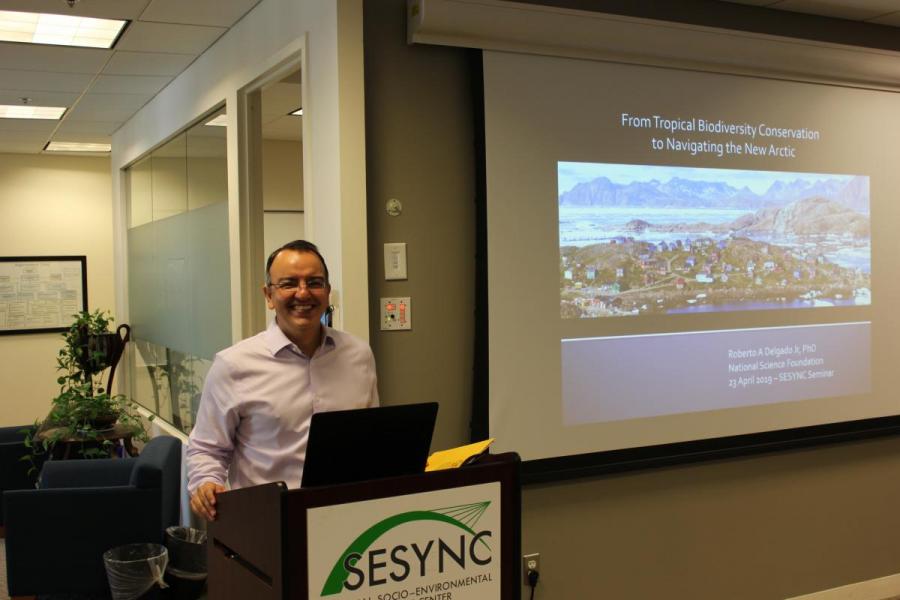
From declining Arctic sea ice to tropical deforestation, understanding complex environmental problems requires collaborative, integrative approaches. An awareness of socio-environmental interconnections can emerge over time. In a seminar at SESYNC on April 23, Dr. Roberto Delgado shared his career path from working as a biological anthropologist in the tropical forests of Indonesia to becoming an NSF Program Director for the Office of Polar Programs.
While many other programs at NSF are divided between disciplines, the Office of Polar Programs is interdisciplinary “by definition,” Delgado explained. Because it focuses on all different kinds of scientific research that take place in polar regions, the Office includes programs ranging from astronomy to biology to the social sciences.
Integration is one of the hallmarks of the convergence approach, which NSF defines as research that is “driven by a specific and compelling problem” and that features “deep integration across disciplines.” NSF has emphasized convergence in launching Navigating the New Arctic, one of its “10 Big Ideas,” as Delgado shared at SESYNC. The idea behind Navigating the New Arctic is to provide “that push to get everybody together,” Delgado said, in an effort to understand complex Arctic environmental problems holistically.
Delgado’s own life experiences have spanned academic disciplines and geographic regions. Trained as a biological anthropologist, Delgado began his career conducting studies of orangutan vocalizations in Indonesia, and he subsequently did conservation work in Zanzibar. He later transitioned into public service, working on Arctic issues as a AAAS Fellow at NSF. Delgado then worked at NIH, returning to NSF’s Office of Polar Programs in August 2018. In providing advice to researchers who are interested in moving into policy careers, he encouraged people to become familiar with NGO and government programs’ policy documents and priorities.
As a result of his career path, ranging from scientific field research to public engagement and government work, Delgado now sees his previous research in the tropics differently. Looking back, “there was this interdependence, and I was just so narrowly focused at the time, with ‘oh what are my apes doing here,’” he reflected, “without taking a step back and saying, ‘well, this is one species, within a community of species, of a larger landscape that has societal impacts.'"